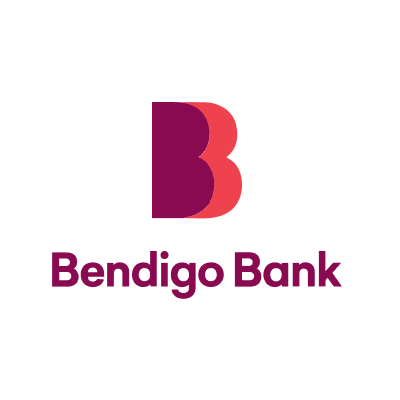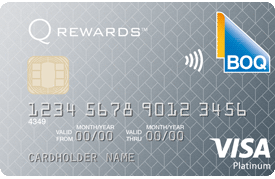Welcome to the Bendigo Banking Bulletin! In this edition, we will explore the key aspects of credit management and provide you with valuable tips and strategies to help you achieve financial wellness. Managing your credit responsibly is essential for maintaining a healthy financial life, and we are here to guide you every step of the way.
Whether you’re looking for financial advice in Bendigo, seeking credit management resources, or simply want to improve your credit score, our comprehensive guide will provide you with the tools and knowledge you need.
Through this article, we will cover a wide range of topics, including:
- Credit management strategies: Learn effective techniques to manage your credit effectively and avoid potential pitfalls.
- Bendigo credit card tips: Discover valuable insights on using credit cards responsibly and maximizing their benefits.
- Improving your credit score: Gain expert advice on boosting your creditworthiness and enhancing your financial well-being.
- Bendigo financial wellness: Explore resources and programs designed to support your financial journey and ensure long-term stability.
- Bendigo credit education resources: Access educational materials and programs that will empower you to make informed credit decisions.
We understand the importance of managing your credit effectively, and our aim is to equip you with the knowledge you need to take control of your financial future. Stay tuned for the upcoming sections where we dive deeper into credit management, healthy credit habits, navigating credit card usage, managing debt and loan repayments, building and repairing credit, and valuable credit education resources.
Ready to enhance your credit management skills? Let’s get started!
Understanding Credit Management
Effective credit management is crucial for maintaining financial wellness. By understanding the basics of credit management, you can make informed decisions regarding credit cards, loans, and other forms of credit. A key aspect of credit management is maintaining a good credit score, which opens up opportunities for favorable interest rates and increased borrowing power.
Here are some credit management tips to help you navigate the world of credit:
- Make timely payments: Paying your bills on time is essential for maintaining a healthy credit history. Late payments can negatively impact your credit score and make it challenging to obtain credit in the future.
- Limit credit utilization: Keeping your credit utilization ratio low shows lenders that you are responsible and not relying heavily on credit. Aim to use no more than 30% of your available credit.
- Monitor your credit report: Regularly reviewing your credit report allows you to identify any errors or fraudulent activity. You can request a free copy of your credit report annually from credit reporting agencies.
- Utilize credit management resources: Bendigo offers a range of credit management resources to help you make informed decisions and improve your financial wellness. These resources include educational articles, tools, and programs specifically designed to support your credit management journey.
“Credit management is a balancing act that requires discipline and knowledge. By following these tips and leveraging the resources available to you, you can maintain a strong credit profile and move towards a more secure financial future.” – Jane Williams, Bendigo Financial Advisor
Maintaining responsible credit management practices is an ongoing commitment. By implementing these strategies and staying proactive, you can achieve financial stability and make the most of your credit opportunities.
Establishing Healthy Credit Habits
Establishing healthy credit habits is key to improving your creditworthiness and achieving financial well-being. By following these credit management tips, including Bendigo credit card tips and improving credit score tips, you can set yourself on the path to success.
Paying Bills On Time
One of the most important habits to develop is paying your bills on time. Late payments can have a negative impact on your credit score and may result in additional fees or penalties. Set up reminders or automatic payments to ensure you never miss a due date.
Maintaining a Low Credit Utilization Ratio
Your credit utilization ratio is the amount of credit you are currently using compared to your total credit limit. To establish healthy credit habits, aim to keep your credit utilization ratio below 30%. This shows lenders that you are responsible with credit and can help improve your credit score over time.
Monitoring Your Credit Report Regularly
Regularly monitoring your credit report is essential for identifying any errors or fraudulent activity. By staying on top of your credit report, you can quickly address any issues and protect your financial well-being. Consider using Bendigo credit education resources or other credit management resources in Bendigo to access the tools and information you need.
“Developing healthy credit habits is a lifelong journey. It’s important to be consistent and proactive in managing your credit responsibly.”
By implementing these credit management tips, including Bendigo credit card tips and improving credit score tips, you can establish healthy habits that will benefit you in the long run. Remember, building good credit takes time and effort, but the rewards are worth it.

Navigating Credit Card Usage
When it comes to managing your credit, understanding how to navigate credit card usage is crucial. Credit cards can be powerful financial tools, but without careful management, they can also lead to debt and financial stress. In this section, we will explore key tips and strategies to help you make the most of your credit cards while maintaining your financial wellness.
Choosing the Right Credit Card
Choosing the right credit card for your needs is an important first step. Consider factors such as interest rates, annual fees, rewards programs, and credit limits. If you plan to carry a balance, look for a card with a low interest rate. On the other hand, if you pay your balance in full each month, a rewards card may provide additional benefits. Take the time to compare different credit cards and assess which one aligns best with your financial goals.
Tips for Responsible Credit Card Usage
Responsible credit card usage is key to maintaining good credit and avoiding unnecessary debt. Follow these tips to make the most of your credit card:
- Pay your balance in full and on time: Paying your credit card balance in full and on time each month helps you avoid interest charges and late payment fees.
- Keep your credit utilization low: Aim to keep your credit utilization ratio, which is the percentage of your available credit that you use, below 30%. This shows lenders that you are using credit responsibly.
- Monitor your credit card statements: Regularly review your credit card statements for any unauthorized charges or errors. Reporting any discrepancies promptly can help protect your finances.
- Avoid cash advances: Cash advances on credit cards often come with high fees and interest rates, making them an expensive way to access cash. It’s best to explore alternatives before considering a cash advance.
- Be mindful of credit card rewards: While credit card rewards can be enticing, be mindful of their impact on your financial situation. Avoid overspending just to earn rewards and ensure that the benefits outweigh any associated costs.
Managing Debt and Loan Repayments
In today’s financial landscape, managing debt and loan repayments is crucial for maintaining a healthy credit profile and achieving financial wellness. Whether you have credit card debt, student loans, or a mortgage, having a well-thought-out plan can help you stay on track and avoid potential pitfalls. In this section, we will provide you with effective strategies to manage your debts and navigate loan repayments successfully.
Prioritizing Debt Repayment
When you have multiple debts, it’s important to prioritize which ones to pay off first. Start by identifying debts with the highest interest rates, such as credit cards, as these tend to accumulate more interest over time. By focusing on these high-interest debts, you can save on interest payments and expedite your path to debt freedom.
Consider utilizing the debt snowball or debt avalanche method to tackle your debts. The debt snowball method involves paying the minimum on all your debts while putting any extra money towards the smallest debt. Once that debt is paid off, use the freed-up funds to attack the next smallest debt. This method gives you quick wins and motivation to keep going. Alternatively, the debt avalanche method focuses on paying off the debt with the highest interest rate first, potentially saving you more money in the long run.
Negotiating Repayment Terms
If you’re struggling with loan repayments, don’t hesitate to reach out to your creditors. Many lenders are willing to work with you to find a solution that suits your financial situation. They may be open to adjusting your repayment schedule, lowering interest rates, or temporarily reducing your monthly payments. Exploring these options can provide much-needed relief and prevent late payments or defaults from negatively impacting your credit score.
Financial institutions like Bendigo Bank are dedicated to helping their customers navigate challenging financial times. Their team of experts can provide personalized advice and explore alternative repayment options that align with your goals.
Avoiding Common Debt Traps
While managing debt, it’s important to stay vigilant and avoid falling into common debt traps. These traps could include excessive borrowing, maxing out credit cards, or relying on high-interest payday loans. By maintaining a budget, tracking your expenses, and living within your means, you can prevent unnecessary debt and ensure long-term financial stability.
Additionally, make sure to consistently monitor your credit report for any errors or fraudulent activity. Reporting and resolving these issues promptly can protect your creditworthiness and save you from potential financial headaches in the future.
Remember, managing debt is a journey that requires discipline and perseverance. By implementing these strategies and seeking guidance from financial professionals, like those at Bendigo Bank, you can take proactive steps towards a debt-free future and achieve financial wellness.

Building and Repairing Credit
Building and repairing credit is crucial for improving your financial wellness. Whether you’re looking to increase your credit score or address negative items on your credit report, there are several strategies you can implement. Here are some helpful tips:
1. Utilize Credit Builder Loans
A credit builder loan is an excellent tool for building credit. These loans are specifically designed to help individuals establish a positive credit history. By making timely payments on the loan, you can demonstrate responsible credit management and improve your credit score.
2. Become an Authorized User
Becoming an authorized user on someone else’s credit card can boost your credit score if the primary account holder has a good payment history and low credit utilization. However, it’s essential to choose a trustworthy person and ensure their responsible credit habits.
3. Address Negative Items on Your Credit Report
If you have negative items on your credit report, such as late payments or collections, it’s essential to address them promptly. You can start by contacting the credit bureaus to dispute any inaccuracies or negotiate repayment arrangements with creditors.
Frequently Asked Questions
What is credit management?
Credit management refers to the practices and strategies individuals use to responsibly manage their credit. It involves managing credit cards, loans, and other forms of credit to maintain a good credit score and financial well-being.
Why is credit management important Bendigo Banking Bulletin?
Credit management is important because it affects your ability to borrow money, get approved for loans and credit cards, and secure favorable interest rates. By managing your credit responsibly, you can improve your creditworthiness and overall financial health.
How can I effectively manage my credit cards?
To effectively manage your credit cards, make sure to pay your bills on time, keep your credit utilization ratio low, and avoid carrying high balances. It’s also important to review your credit card statements regularly and avoid unnecessary spending.
What are some tips for improving my credit score Bendigo Banking Bulletin?
To improve your credit score, focus on paying your bills on time, reducing your credit card balances, and avoiding new credit applications. Additionally, monitor your credit report for errors and address any negative items that may be affecting your score.
How can I avoid credit card debt Bendigo Banking Bulletin?
To avoid credit card debt, it’s important to use credit cards responsibly. Set a budget, avoid impulse purchases, and pay your credit card balance in full each month. If you do carry a balance, try to pay more than the minimum payment to reduce interest charges.
What should I do if I have too much debt Bendigo Banking Bulletin?
If you have too much debt, consider prioritizing your debts based on interest rates and paying off high-interest debts first. You may also explore options like debt consolidation or negotiating repayment terms with lenders to make your debt more manageable.
How can I build or repair my credit Bendigo Banking Bulletin?
To build or repair your credit, you can start by using credit builder loans or becoming an authorized user on someone else’s credit card. It’s also important to address any negative items on your credit report, such as late payments or collection accounts.
Where can I find resources for credit education Bendigo Banking Bulletin?
Bendigo offers a range of credit education resources, including the Bendigo Banking Bulletin articles, online tools, and educational programs. These resources can provide valuable insights and guidance to help you enhance your credit management skills.
For more informations: https://www.bendigobank.com.au/support/comprehensive-credit-reporting/










